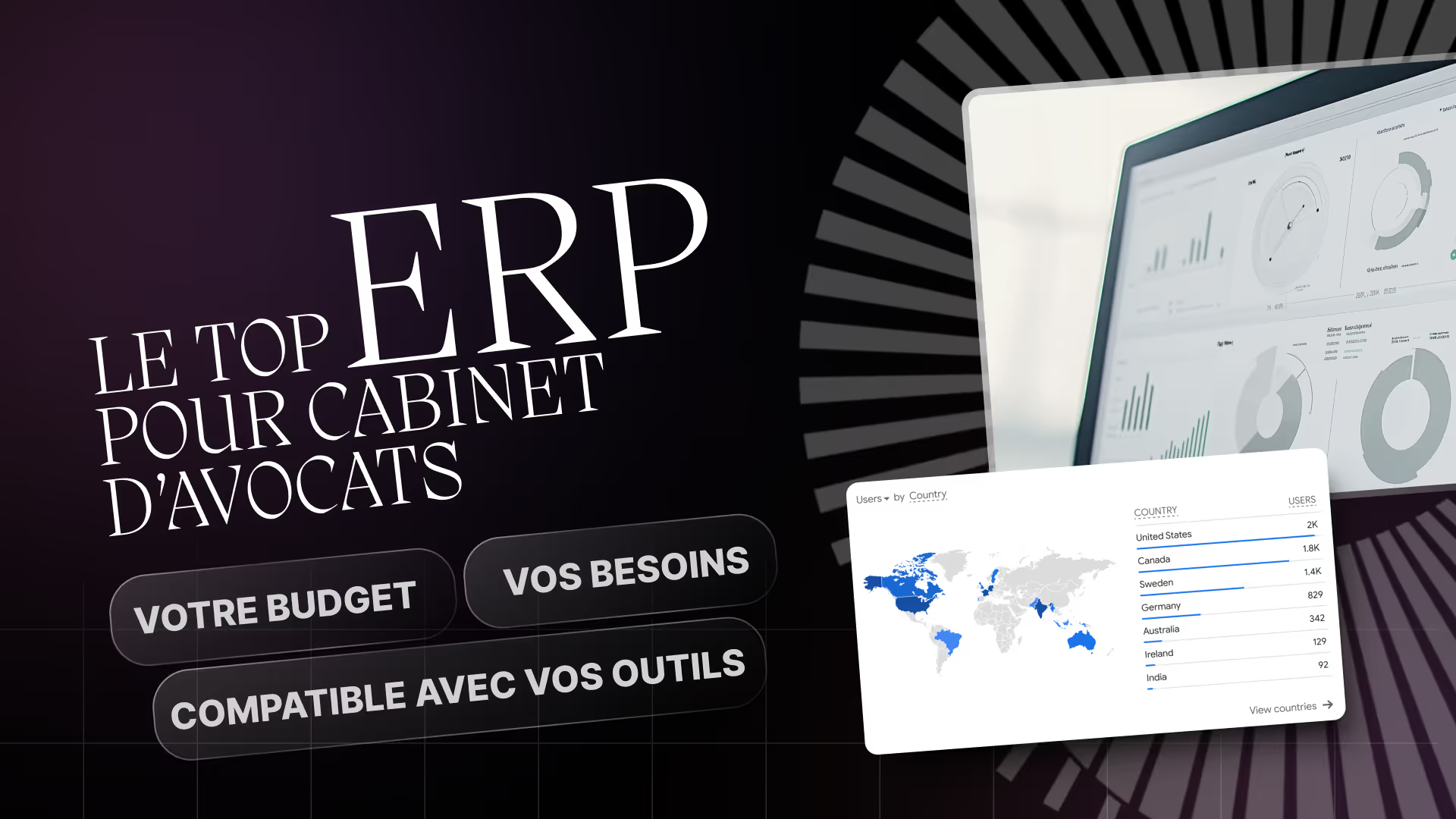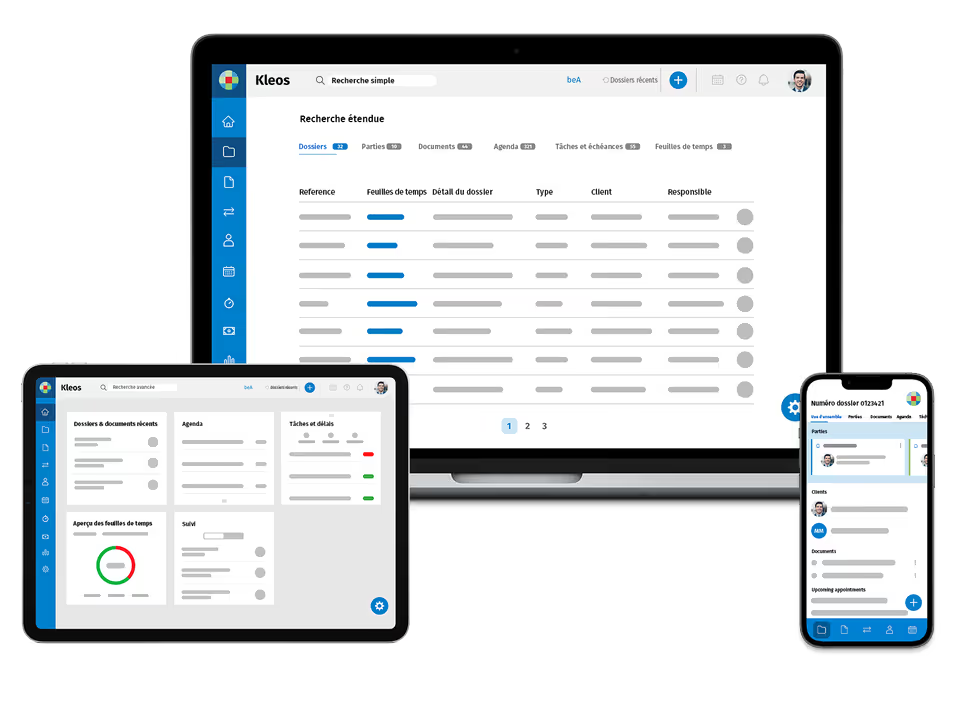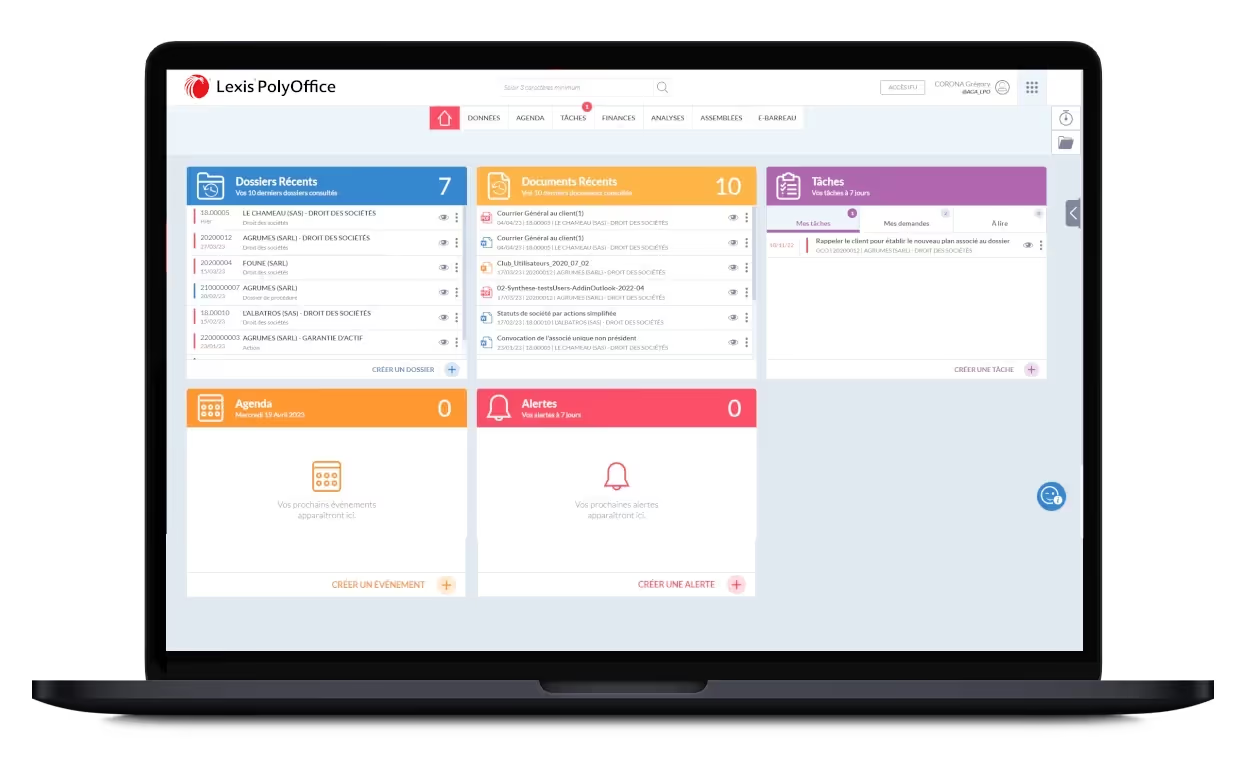
The best ERPs for your law firm
Find out what are the advantages for a lawyer to have an ERP and which ones to choose for his law firm.

Find out what are the advantages for a lawyer to have an ERP and which ones to choose for his law firm.
An ERP (Enterprise Resource Planning), or PGI (Integrated Management Software) in French, is a software designed to centralize and automate the management of a business or a professional firm. It includes several essential functionalities such as accounting management, invoicing, customer and human resources management, as well as performance monitoring and ongoing cases.
ERPs make it possible to eliminate redundant processes, improve the traceability of information and offer an overview of business activity. This centralization promotes better coordination of teams and optimization of available resources.
Although ERP and the CRM (Customer Relationship Management) are two management tools, they have distinct objectives. ERP is focused on optimizing a company's internal processes, such as accounting, human resource management, and production. It aims to improve operational efficiency and overall profitability.
The CRM, on the other hand, is specifically designed to manage customer relationships. It makes it possible to track customer interactions, automate marketing campaigns, and improve customer satisfaction. In a law firm, a CRM can be useful for managing customer prospecting and retention, while an ERP allows for a more comprehensive management of the firm's activities.
In a law firm, an ERP plays a key role in facilitating the management of daily and administrative tasks. In particular, it makes it possible to:
An ERP makes it possible to organize customer files, to structure legal documents and to ensure effective follow-up of deadlines.
The ERP makes it possible to automatically calculate fees according to the time spent on each case and to issue invoices in accordance with current regulations.
By taking into account the legal and accounting obligations specific to legal professions, an ERP helps firms to comply with current standards.
A specialized ERP allows better management of collaborative workflows, thus promoting smooth communication between lawyers and legal assistants.
Law firms deal with confidential information. A robust ERP guarantees advanced data protection and secure access management.
General-purpose ERPs can be effective, but they don't always meet the specific needs of a law firm. A dedicated ERP integrates functionalities that are essential to legal activity, such as:
ERP allows structured filing of files, automated monitoring of deadlines and automatic generation of documents, which optimizes organization and reduces the risk of errors.
The ERP automatically calculates fees according to the time spent or defined packages, simplifying invoicing and offering tools to track payments and issue quotes.
Quick access to legal texts, case law and model acts via the ERP facilitates daily legal work and reduces research time.
The interface is designed to be intuitive, combining legal and administrative management in a single dashboard, thus improving efficiency and productivity.
ERP helps manage conflicts of interest, ensures secure archiving and guarantees compliance with the fiscal and ethical obligations of lawyers, especially in terms of data protection.
The adoption of a specialized ERP therefore allows firms to save time, improve their profitability and better meet the expectations of their customers.
.avif)
Diapaz is a complete ERP solution suitable for law firms of all sizes. It offers smooth case management, advanced billing automation, and advanced tools for monitoring activities. It is distinguished by its intuitive interface and its high level of customization.
.avif)
Secib is one of the market leaders with its Secib solution. This ERP dedicated to lawyers offers a collaborative and connected approach, integrating document management tools, accurate monitoring of time spent and accounting adapted to the requirements of law firms.
.avif)
Jarvis Legal is a modern cloud ERP that appeals to many firms because of its flexibility. It allows lawyers to work on the go and to access their files securely. Its fluid interface and collaborative functionalities facilitate the organization and management of teams.

Kleos Developed by Wolters Kluwer, Kleos is an ERP designed for firms looking for a secure and efficient solution. It integrates case management functionalities, rigorous task tracking, and advanced reporting tools to analyze the firm's profitability.

Lexis PolyOffice stands out for its integration with LexisNexis databases, allowing lawyers to quickly access legal references and specialized content. It offers comprehensive management of a firm's activities with a strong emphasis on optimizing administrative tasks.